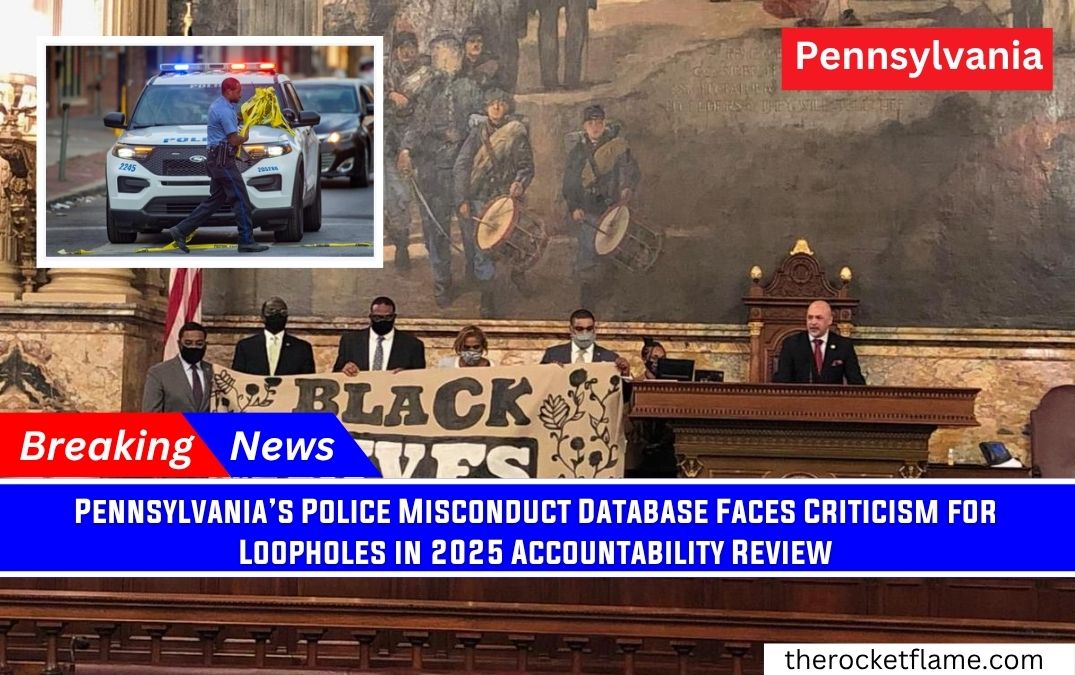ive Years After George Floyd’s Death, PA’s Reform Tool Falls Short
Pennsylvania’s police misconduct database, created in 2020 following George Floyd’s murder, was once seen as a model for law enforcement accountability.
But five years later, the system is drawing criticism from original backers who say it’s full of loopholes and lacks enforcement power.
What Happened
In response to national protests in 2020, Pennsylvania lawmakers passed a law to create a statewide database tracking police misconduct.
The goal was to prevent officers with histories of abuse or misconduct from quietly transferring between departments.
Despite bipartisan support at the time, oversight and accountability efforts have since lost momentum.
Key Details
The database is intended to log “final and binding” disciplinary actions involving:
- Excessive force
- Sexual misconduct
- Discrimination
- Filing false reports
- Other serious violations
Police departments are required to check the database before hiring an officer and submit a justification if they hire someone with a flagged record.
However, departments aren’t required to report complaints that didn’t result in formal discipline.
There’s also no penalty for failing to submit information or for skipping the required explanation when hiring an officer with a misconduct record.
Reactions or Statements
State Rep. Chris Rabb (D-Philadelphia), who authored the original bill, said the law is “nowhere near as effective as it could be.”
Elizabeth Randol of the ACLU Pennsylvania added, “I’m not shocked that it had loopholes, but more dismayed that this was the only thing that came of it — and the only thing that came of it was terribly imperfect.”
Examples from public records show vague or minimal hiring justifications even in cases involving excessive force or sexual misconduct.
Investigation or What’s Next
Efforts to strengthen the law stalled in the legislature. Rabb introduced a bill to:
- Require reporting of all disciplinary actions, not just final rulings
- Penalize departments that ignore reporting rules
- Increase transparency around the database
Although the bill passed a House committee, it never advanced.
Now, Rabb is calling on Governor Josh Shapiro to use executive power to expand the CLEAR Commission’s role in overseeing police accountability.
There’s been no response from the governor’s office on whether that expansion will happen.
FAQs
What is Pennsylvania’s police misconduct database?
A system created in 2020 to track officers with serious disciplinary records, intended to prevent re-hiring of problem officers by other departments.
Who is required to use the database?
All law enforcement agencies in Pennsylvania are required to check the database before hiring a new officer.
What are the flaws in the system?
The law only requires reporting of “final and binding” discipline. There are no penalties for non-compliance, and many hiring justifications are vague.
Has the law been updated since 2020?
No major updates have passed. A reform bill introduced by Rep. Rabb stalled before reaching a floor vote.
What could happen next?
Advocates are urging Governor Shapiro to expand the CLEAR Commission’s authority to increase oversight without needing new legislation.
Summary / Final Takeaway
Pennsylvania’s police misconduct database, once seen as a step forward in post-George Floyd reform, now faces growing criticism for its loopholes and lack of enforcement.
Without stronger legislative action or executive intervention, advocates fear the system will remain a limited and ineffective tool for police accountability.












